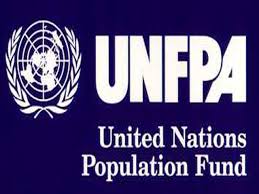By Philip Yatai
The Association of Positive Youths Living with HIV and AIDs in Nigeria (APYIN) says it is working
with the UN Population Fund (UNFPA) to address HIV viral load suppression among Adolescents and Young People (AYP) in Kaduna State.
The Coordinator of the association in the state, Mr Sambo Heman, told the News Agency of Nigeria (NAN) in Kaduna on Thursday
in commemoration of 2022 World AIDS Day that one of the key challenges of the over 10,000 AYP living with HIV and AIDS
in the state is low adherence to the drugs.
NAN reports that World AIDS Day is annually celebrated on Dec. 1 in UN member states since 1988 as an international day
dedicated to raising awareness of the AIDS pandemic, caused by the spread of HIV infection and mourning those who died of the disease.
The celebration has “Equalise” as theme for 2022.
AIDS is a chronic immune system disease caused by the Human Immunodeficiency Virus (HIV), which damages the immune system
and interferes with the body’s ability to fight diseases.
HIV can be spread through contact with infected blood, semen, or vaginal fluids.
There’s no cure for HIV/AIDS, but medications can control the infection and prevent disease progression and people taking HIV
medications may not have other symptoms for years.
Some people with HIV develop flu-like symptoms two to four weeks after getting the virus and as the virus multiplies and
destroys immune cells, symptoms such as fever, fatigue, and swollen lymph nodes may occur.
If left untreated, HIV typically turns into AIDS in about eight to 10 years.
Heman, therefore, said APYIN, with support from UNFPA, is working to address nonadherence to drugs and lack of viral
suppression among AYP in the state.
He added that the intervention was being piloted in Kaduna North and Chikun Local Government Areas of the state
with high burden of AYP living with the virus and nonadherence to drugs.
The coordinator pointed out that drugs were always available with no stockout, adding however that the AYP were
not adhering to the drugs, leading to low viral load suppression among young people.
He explained that “the initiative provides a platform for a case conference with all unsuppressed adolescents
and young people living with HIV and AIDS.
“We meet and discuss issues around why they are not adhering to the drugs and why those adhering to the
drugs are not attaining viral load suppression.
“This intervention is very critical for us, particularly to address the challenge of low suppression of viral load among AYP.
“One of the issues that came out during our conversation is stigma even within households, while others do not even
know why they are taking the drugs.
“If we fail to address this problem to ensure viral suppression we will fall back to yesterday and revert all progress made so far.”
The coordinator added that another issue that came out was that a significant number of AYP were abusing drugs.
He explained that the drugs were interacting with the antiretroviral drugs, thereby inhibiting its effectiveness leading to reduced viral load suppression.
He said plans were being concluded to work with Kaduna State Bureau for Substance Abuse, Prevention and Treatment and other government
agencies to address the challenge, adding that stigma had remained one of the major challenges affecting people living with the virus in schools, including households.
The association, with support from UNFPA, UNICEF and other partners, is working with families, religious and community leaders, school managers
and administrators to address the issue of stigma and discrimination, he said.
One of the AYP, Ms Fatima Abdulazeez, told NAN that she is living a quality life because of adherence to drugs.
Abdulazeez, a graduate of microbiology, however, said she is still finding it difficult to fully disclose her HIV status because of the fear of being stigmatised.
“I am living in fear due to the uncertainty of how people will act if they know my status. Notwithstanding, I am still urging residents
to get tested, know their status and begin treatment if positive,” she said. (NAN)




